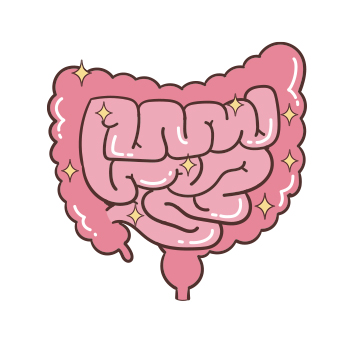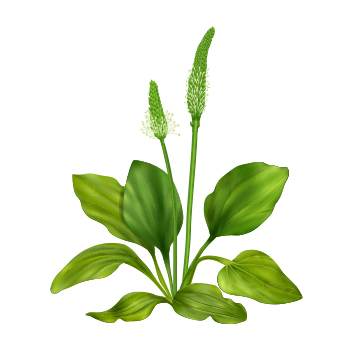


Sign-up for {N}power to get exclusive discounts, newsletters, members-only features, and more!

We all know the funny yet factual book that helps children learn to potty train called “Everyone Poops,” but as we go through life, this simple statement becomes much more nuanced. The frequency and consistency of our bowel movements can tell us a lot about our overall health, and having regular bowel movements daily is a great indicator of good health. So when things get out of whack, and going number two is now your number one frustration, it’s time to take a closer look at factors that may be contributing to constipation. With natural remedies and a change in routine, you can give your body the best chance at coming back into balance with regular BMs again.

Oftentimes, constipation—difficulty passing stool or having less than three bowel movements per week—is directly linked to a poor diet, specifically a diet containing too many refined sugars and ultra-processed foods.1 When this is your main source of “food,” you’re likely not consuming enough fiber from an adequate intake of vegetables, fruits, legumes, whole grains, nuts, and seeds to help make bowel movements easy and regular. Adequate fiber intake is critical for general bowel health and for promoting regular, healthy bowel movements. Fiber passes through the digestive tract without being absorbed, helping create softer, bulkier stool that is easier to pass. It also acts as a food source for beneficial bacteria in the gut, further promoting regular elimination.2
There are two main types of fiber, soluble and insoluble. Consuming both types of fiber are important for bowel health and can be achieved by eating vegetables with every meal, including fruit, nuts, and seeds as desired, and consuming legumes and whole grains as body type and lifestyle factors allow. In general, most foods (and fiber supplements) contain a combination of both types.
In the treatment of constipation, the recommendation is to gradually increase both types of fiber, for a total of 35 grams daily.3 It is important to note that anytime you increase your fiber intake you should also make sure to get adequate amounts of water—increased amounts of fiber without enough water can make you constipated.

Psyllium husk is a type of fiber that contains both soluble and insoluble fiber and is used as a dietary supplement to promote healthy elimination.4 It acts as a bulk-forming laxative, relieving constipation and even mild diarrhea.5 Unlike some laxatives, it doesn't cause painful contractions of the intestines, rather, it increases the weight and bulk of stools which, in turn, stimulates bowel movements.6
A 2019 study found that psyllium was just as effective as the drug Pizensy, a prescription laxative, in treating chronic idiopathic constipation (persistent constipation of unknown origin). The study reported that psyllium was well-tolerated with no significant side effects.7 Look for organic psyllium husk in convenient pill or powder forms and drink at least 10-ounces of water or more when taking.
Constipation can be very uncomfortable and painful—causing strained, hard stools, or a lack of bowel movements altogether. When you need to get things moving quickly, the mighty mineral magnesium may be the answer, as it goes to work relatively quickly, inducing the need to pass a bowel movement within 30 minutes to six hours.8 Certain forms of magnesium work as an osmotic laxative, meaning it pulls water into the intestines, increases water content, and relaxes the bowels. This helps soften and increase the volume of the stool, which stimulates intestinal activity and promotes bowel movements.9 10
Another cause of constipation could be dysbiosis of the gut microbiota. Research shows that those with chronic constipation, which includes constipation-type irritable bowel syndrome (IBS), had a lower level of Bifidobacteria in their fecal samples compared with healthy subjects.11

A systematic review and meta-analysis of 30 studies in adults with chronic constipation found that probiotic supplements improved stool frequency, stool consistency, and the time it took food to move through the colon, with Bifidobacterium lactis having a significant effect.12 13 Another review of 21 studies, comprised of 2,656 subjects in people with constipation, showed that taking probiotic supplements that contain Lactobacillus or Bifidobacterium species resulted in an average increase in weekly stool frequency and a reduction in intestinal transit time through the colon.14
Look for a high-quality probiotic supplement containing one or several different species of beneficial bacteria. Additionally, maintaining a diverse and healthy gut microbiota can be achieved through a balanced diet rich in fiber, probiotics, and prebiotics, which support the growth of beneficial bacteria.15
Stay active, drink water, and eat fiber—bouts of constipation and chronic constipation are associated with a person’s daily activity level, water, and dietary fiber intake.
A study of 4,561 adults ages 18–65 found that those who were classified as “moderately active” and “active” had a decreased likelihood of constipation compared with inactive participants. Additionally, the participants who were classified amongst the highest water intake group also had a decreased likelihood of constipation compared to participants consuming the least amount of water. The same held true for those consuming more fiber. Those with the highest fiber intake had less constipation compared to those consuming the least amount of fiber.16
The study concluded, “Insufficient physical activity, decreasing fiber and water intake, obesity, advancing age, and female gender were associated with increased constipation risks. Combining regular physical activity and increasing fiber and water intake may protect from constipation, and relieve constipation symptoms.”17
Dealing with constipation can be a real pain “in the you know what.” But it doesn’t have to be. You can restore regularity by omitting ultra-processed foods from your diet, consuming more fiber from organic fruits and vegetables, incorporating psyllium, magnesium, and probiotics as key digestive-supportive supplements, and staying active while prioritizing hydration as part of a comprehensive approach.



Sign-up for {N}power to get exclusive discounts, newsletters, members-only features, and more!